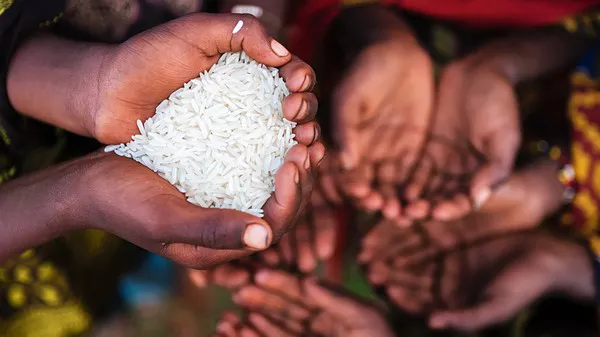Gaza Strip — Residents of the Gaza Strip are grappling with increasingly dire conditions as they confront a devastating choice amidst an ongoing Israeli military operation. Thousands in the northern part of the enclave are fleeing following an Israeli evacuation warning, while others remain trapped at home or find shelter in hospitals, unable or too fearful to move as Israel escalates its assault on the region.
On this ninth day of relentless warfare between Israel and Hamas, Gaza’s 2.3 million inhabitants are dealing with dwindling supplies of food, fuel, water, and electricity. Phone and internet connections have become intermittent as critical infrastructure crumbles.
Warda, a mother of three who wished to remain anonymous for security reasons, expressed her desperation, saying, “What should I do? Nowhere is safe.” She was hurriedly packing a bag in a bid to flee south, possibly on foot, due to a lack of transportation. She lamented, “I don’t have any news. No electricity or water. Anywhere I go, we could die.”
Israel has urged more than one million residents, including those in Gaza City, to evacuate the northern part of Gaza where Israeli airstrikes have caused extensive destruction. This warning has led to a chaotic exodus along hazardous routes to the south, and at least one convoy was bombed, as verified by video footage from The Washington Post.
The Israeli military has assured that a section of the main road traversing the length of the Gaza Strip will be safe from military operations, emphasizing the importance of residents’ safety and that of their families.
Within Gaza, an estimated one million residents are displaced, according to UNRWA, the U.N. relief agency for Palestinian refugees. Many remain skeptical about Israel’s commitments to refrain from military operations on the road out of Gaza City.
Palestinian officials have reported that over 2,600 people have been killed in Gaza, with more than 9,600 injured. The Palestinian Ministry of Health has issued an “urgent appeal” for countries to send medical delegations to aid in treating the wounded, highlighting the plight of medical workers who have themselves been killed, injured, or displaced.
Gaza’s overwhelmed hospitals are struggling to cope with the influx of patients. Doctors are moving patients to the floor to make room for new arrivals, while bodies accumulate outside. At al-Shifa Hospital in Gaza City, approximately 30,000 people have sought refuge in and around the buildings in hopes of finding safety.
Mohammed Shaqra, a Gaza City municipal worker, expressed the desperation felt by many residents, saying, “If we decide to evacuate our homes, our neighborhoods, we will have nowhere to go. Everything is being targeted.”
Tragically, some families face the agonizing choice of staying together in one room, potentially facing a fatal strike, or dispersing children to different homes and convoys heading south, hoping to ensure the survival of at least some family members.
Warda’s poignant words captured the grim reality on the ground: “There is death, horror, and destruction everywhere. This is a war of annihilation.”
Israel has vowed to “destroy” Hamas and its leadership in Gaza, raising the specter of a “wide range” of offensive plans, including a possible ground invasion. The conflict intensifies in an area that, along with the occupied West Bank, Palestinians envisioned as part of a future state.
The humanitarian crisis deepens as aid piles up in Egypt’s Sinai Peninsula bordering Gaza. Despite hopes that the border would open to facilitate the evacuation of foreign nationals, including U.S. citizens, it remains closed. U.S. national security adviser Jake Sullivan noted that Egypt had agreed to allow U.S. citizens to leave but encountered obstacles from Hamas.
For Palestinians in Gaza, escape remains a distant hope, with Ahmed, 42, expressing the grim sentiment, “If foreign nationals are allowed to evacuate, it will be even worse once they are gone.”
Amidst this crisis, heart-wrenching stories of families perishing in their homes or shelters continue to emerge, underscoring the profound human toll of the conflict. Gaza’s residents grapple with unspeakable loss, the indiscriminate destruction of their homes, and an uncertain future.

